Leading through Crisis: A Primer in Disaster Preparedness
Leading through Crisis: A Primer in Disaster Preparedness
Effective disaster response requires advance preparation and strategic planning. This module details how to position academic nursing leaders to ensure continuity of operations when disaster strikes. In addition to setting expectations for top leaders, content focuses in part on how to prepare faculty and students to thrive during a crisis using nursing curriculum that leverages contemporary lessons learned and integrates best practices connected to disaster preparedness and response.
At the end of this module, you will be able to:
- Understand the leader’s role in maintaining continuity in times of crisis.
- Design curriculum and instruction in disaster preparedness across nursing education programs.
- Engage students and faculty in crisis management and response.
Author: Roberta P. Lavin, PhD, FNP-BC, FAAN
Experts Interviewed:
- Eileen Sullivan-Marx, PhD, RN, FAAN
- Joanne C. Langan, PhD, RN, CNE
- Liz Dietz, EdD, RN, CS-NP, CSN
- Mary Pat Couig, PhD, MPH, RN, FAAN
Leadership Development Modules
Sharpen your leadership skills using this on-demand series designed exclusively for nursing deans, faculty, and graduate students. Modules will enrich your understanding of key principles and practices needed for leaders to succeed in the academic arena. AACN has developed this series in conjunction with seasoned experts who offer guidance and practical strategies on how to navigate real-world challenges and amplify your effectiveness. Content is designed to stimulate fresh thinking and provide solutions to some of your most pressing challenges. This resource was developed for nursing professionals at all levels, including those aspiring to leadership roles.
Author: Roberta Lavin, PhD, FAAN
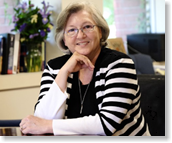 Dr. Lavin spent twenty years as U.S. Public Health Service officer. She began her career at St. Elizabeths Hospital in Washington, DC on an acute psychiatric admission unit for those who were homeless. In her work, she has coordinated mass migrations in Guatemala, managed health care in an immigration detention center in Batavia, New York before becoming the Chief of Field Operations of the Division of Immigration Health Services, worked for the Federal Bureau of Prisons in Tucson, Arizona, and spent a few months “tooling around” the South Pacific on a National Oceanic and Atmospheric Administration research vessel.
Dr. Lavin spent twenty years as U.S. Public Health Service officer. She began her career at St. Elizabeths Hospital in Washington, DC on an acute psychiatric admission unit for those who were homeless. In her work, she has coordinated mass migrations in Guatemala, managed health care in an immigration detention center in Batavia, New York before becoming the Chief of Field Operations of the Division of Immigration Health Services, worked for the Federal Bureau of Prisons in Tucson, Arizona, and spent a few months “tooling around” the South Pacific on a National Oceanic and Atmospheric Administration research vessel.
After 9/11 and the Anthrax attacks she was selected to be the Director of the Secretary’s Command Center for the Department of Health and Human Services and later became the Chief of Staff for the Assistant Secretary for Preparedness and Response. She ended her USPHS career again working with the poor and underserved leading the by research and development for a national disaster case management program.
Her current research focuses on bringing cultural competency around urban and rural communities to practicing nurses and disaster preparedness. Current projects include infusion and assessment of cultural competency in training DNP students and research of training gaps for health care primary care providers for disaster response. She is developing an inter-professional curriculum around disaster preparedness.
Expert: Mary Patricia Couig, PhD, MPH, RN, FAAN
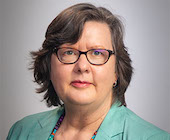 Dr. Mary Patricia Couig is an associate professor at the University of New Mexico. Couig served from 2000-2005 as the Chief Nurse Officer and Assistant Surgeon General of the U.S. Public Health Service. During her tenure she collaborated with the Federal Nursing Services Council (which includes representatives from the Air Force, Army, Navy, PHS, Veterans Health Administration and the American Red Cross) and local, state, national and international colleagues on strengthening nursing's role and public health preparedness. She also consulted with the Jordanian Nursing Council on nursing public health preparedness. Prior to joining the faculty Couig worked for the Office of Nursing Services in the Department of Veterans Affairs as the national program manager for Public Health Emergency Management, which included the RN Transition-to-Practice Residency Program. And, she led projects for the World Health Organization. Couig received a bachelor of science in nursing degree from Fitchburg State University, where she received the Distinguished Alumni Award, a master of public health degree from the Johns Hopkins Bloomberg School of Public Health, and a PhD from the Uniformed Services University of the Health Sciences.
Dr. Mary Patricia Couig is an associate professor at the University of New Mexico. Couig served from 2000-2005 as the Chief Nurse Officer and Assistant Surgeon General of the U.S. Public Health Service. During her tenure she collaborated with the Federal Nursing Services Council (which includes representatives from the Air Force, Army, Navy, PHS, Veterans Health Administration and the American Red Cross) and local, state, national and international colleagues on strengthening nursing's role and public health preparedness. She also consulted with the Jordanian Nursing Council on nursing public health preparedness. Prior to joining the faculty Couig worked for the Office of Nursing Services in the Department of Veterans Affairs as the national program manager for Public Health Emergency Management, which included the RN Transition-to-Practice Residency Program. And, she led projects for the World Health Organization. Couig received a bachelor of science in nursing degree from Fitchburg State University, where she received the Distinguished Alumni Award, a master of public health degree from the Johns Hopkins Bloomberg School of Public Health, and a PhD from the Uniformed Services University of the Health Sciences.
Expert: Liz Dietz, EdD, RN, CS-NP, CSN
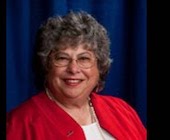 Dr. Dietz is a Professor emeritus at San Jose State University and serves on ANA\C’s Board as Legislative Director. In this role, she chairs the Legislative Committee, coaches nurses in effective health policy advocacy, and collaborates with ANA\C staff to represent the interests of the nursing profession. She also attends meetings of the Board of Registered Nursing, legislative hearings and political events on behalf of ANA\C. Dr. Dietz serves on ANA’s Political Action Committee and is a former member of the California BRN. Her service to ANA at the national and state levels is legendary. She is also a longtime Red Cross volunteer nurse and has been honored by this organization for her service.
Dr. Dietz is a Professor emeritus at San Jose State University and serves on ANA\C’s Board as Legislative Director. In this role, she chairs the Legislative Committee, coaches nurses in effective health policy advocacy, and collaborates with ANA\C staff to represent the interests of the nursing profession. She also attends meetings of the Board of Registered Nursing, legislative hearings and political events on behalf of ANA\C. Dr. Dietz serves on ANA’s Political Action Committee and is a former member of the California BRN. Her service to ANA at the national and state levels is legendary. She is also a longtime Red Cross volunteer nurse and has been honored by this organization for her service.
Expert: Joanne C. Langan, PhD, RN, CNE
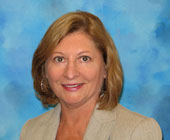 Dr. Langan has been a nurse educator for 35 years. She was a member of a group who studied disaster preparedness in Israel following the 9/11 events. She is lead author of the text, Preparing Nurses for Disaster Management and Leadership and management in nursing (4th ed.). She has been a contributing author for textbook chapters focusing on Disaster Preparedness and Response. Her research and publications have focused on survivors of disasters such as Hurricane Katrina and the Joplin tornado. She has been an invited speaker locally, regionally, nationally and internationally. She is the Chair of the Education Committee of the Society for the Advancement of Disaster Nursing (SADN) and an integral member of the Executive Committee of SADN. She continues to study nurses who have experienced disasters and to glean the lessons learned from these disasters to inform all nurses of best practices. In this way, the nurses are better equipped to prepare their own families, patients, caregivers, and communities for disasters and the appropriate response. As a student advocate, Dr. Langan achieved a $2.1 million HRSA grant, “Scholarships for Disadvantaged Students” (2016-2020). Most recently, she won a $150,000 MSBN and MO Dept. of Higher Education grant to pilot test a faculty sharing project for Psychiatric Mental Health expert faculty with rural Nursing schools in MO.
Dr. Langan has been a nurse educator for 35 years. She was a member of a group who studied disaster preparedness in Israel following the 9/11 events. She is lead author of the text, Preparing Nurses for Disaster Management and Leadership and management in nursing (4th ed.). She has been a contributing author for textbook chapters focusing on Disaster Preparedness and Response. Her research and publications have focused on survivors of disasters such as Hurricane Katrina and the Joplin tornado. She has been an invited speaker locally, regionally, nationally and internationally. She is the Chair of the Education Committee of the Society for the Advancement of Disaster Nursing (SADN) and an integral member of the Executive Committee of SADN. She continues to study nurses who have experienced disasters and to glean the lessons learned from these disasters to inform all nurses of best practices. In this way, the nurses are better equipped to prepare their own families, patients, caregivers, and communities for disasters and the appropriate response. As a student advocate, Dr. Langan achieved a $2.1 million HRSA grant, “Scholarships for Disadvantaged Students” (2016-2020). Most recently, she won a $150,000 MSBN and MO Dept. of Higher Education grant to pilot test a faculty sharing project for Psychiatric Mental Health expert faculty with rural Nursing schools in MO.
Expert: Eileen Sullivan-Marx, PhD, FAAN
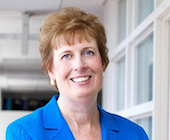 Eileen Sullivan-Marx is dean of the New York University Rory Meyers College of Nursing and the Erline Perkins McGriff Professor of Nursing since 2012. She is serving currently as president of the American Academy of Nursing. Prior to NYU, Dr. Sullivan-Marx had a distinguished career at the University of Pennsylvania School of Nursing, where she was the associate dean for practice & community affairs, creating community partnerships for care of older adults and promotion of healthy activities entitled Healthy in Philadelphia. She is a distinguished nursing leader, educator and clinician known for research and innovative approaches in primary care, testing methods of payment for nurses particularly with Medicaid and Medicare, sustaining models of care using advanced practice nurses locally and globally, and developing health policy in community-based settings. With a strong belief in the integration of practice, research, education, and interdisciplinary team work, Dr. Sullivan-Marx has built and sustained models of team care including a private family practice, growing a Program of All Inclusive Care for Elders (PACE) from 75 persons to 525 persons in five years that saved the state of Pennsylvania fifteen cents on the dollar in Medicaid funding, and launched numerous older adult team programs in academic centers as well as the Veterans Administration.
Eileen Sullivan-Marx is dean of the New York University Rory Meyers College of Nursing and the Erline Perkins McGriff Professor of Nursing since 2012. She is serving currently as president of the American Academy of Nursing. Prior to NYU, Dr. Sullivan-Marx had a distinguished career at the University of Pennsylvania School of Nursing, where she was the associate dean for practice & community affairs, creating community partnerships for care of older adults and promotion of healthy activities entitled Healthy in Philadelphia. She is a distinguished nursing leader, educator and clinician known for research and innovative approaches in primary care, testing methods of payment for nurses particularly with Medicaid and Medicare, sustaining models of care using advanced practice nurses locally and globally, and developing health policy in community-based settings. With a strong belief in the integration of practice, research, education, and interdisciplinary team work, Dr. Sullivan-Marx has built and sustained models of team care including a private family practice, growing a Program of All Inclusive Care for Elders (PACE) from 75 persons to 525 persons in five years that saved the state of Pennsylvania fifteen cents on the dollar in Medicaid funding, and launched numerous older adult team programs in academic centers as well as the Veterans Administration.
Pricing and Continuing Education
$75.00
The American Association of Colleges of Nursing is accredited as a provider of nursing continuing professional development by the American Nurses Credentialing Center's Commission on Accreditation. The entire module and assessment must be completed to earn contact hours. This module is approved 3 Nursing Continuing Professional Development Hours.